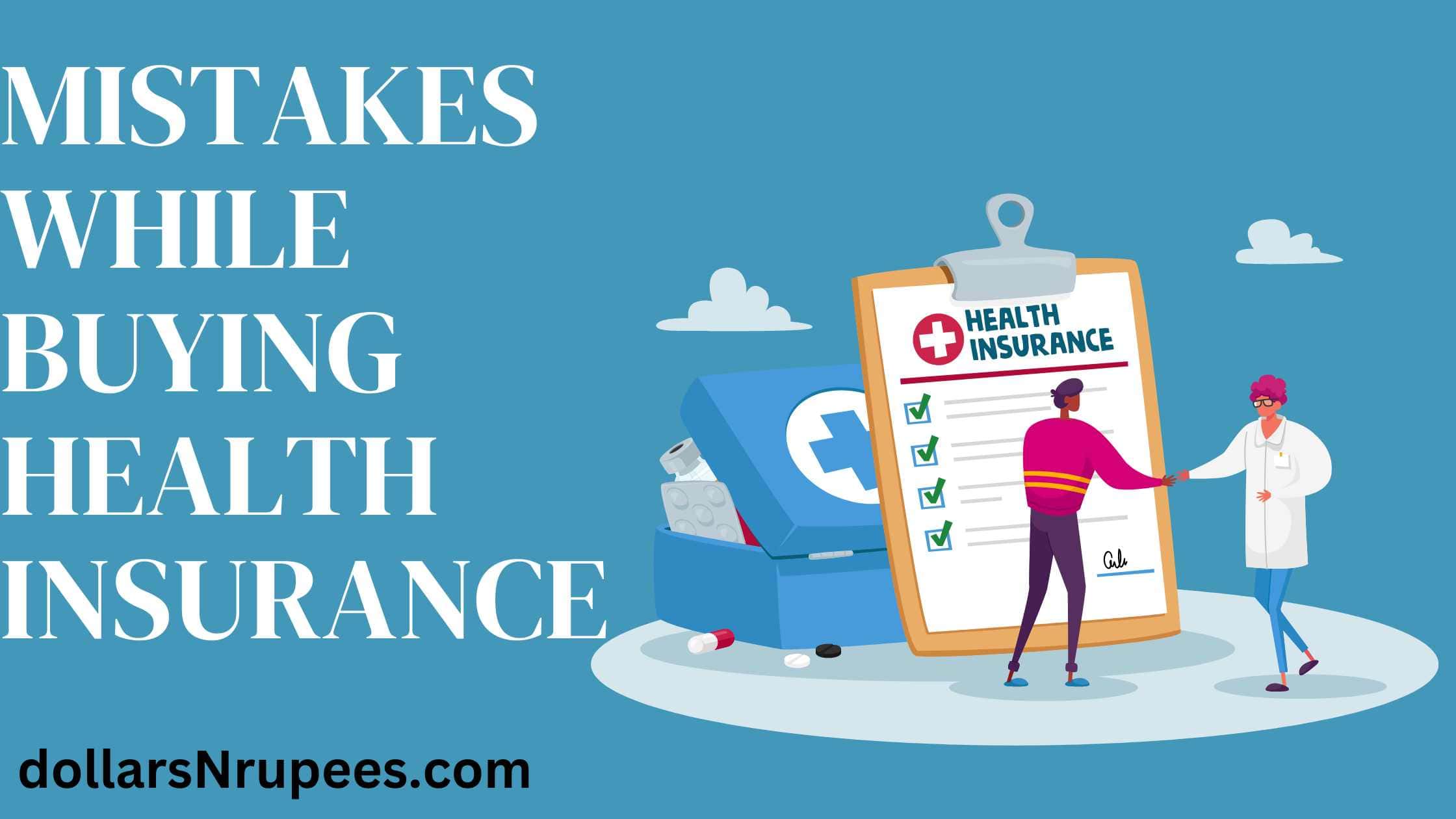Health insurance is crucial for protecting against unexpected medical expenses, but most of us make mistakes when buying it. Common errors include insufficient research, choosing inadequate coverage, failing to disclose medical history, relying solely on employer-provided insurance, misunderstanding policy terms, neglecting future needs, focusing solely on price, waiting too long to buy insurance, and not reviewing policies regularly. Avoid these pitfalls to ensure you choose the right coverage for you and your family.
Related: 12 Most Common Mistakes While Buying Life Insurance
9 Mistakes While Buying Health Insurance
1. Not Doing Enough Research
One of the most common mistakes people make when buying health insurance is not doing enough research. Health insurance plans can vary widely in terms of coverage, cost, and benefits, so it’s important to take the time to compare different plans before making a decision.
When researching health insurance plans, be sure to consider factors such as your family size, medical history, and expected medical expenses. For example, if you have a large family, you may want to consider a family floater plan, which covers the entire family under a single policy.

2. Choosing Inadequate Coverage
Another common mistake is choosing a health insurance plan with inadequate coverage. While it may be tempting to opt for a plan with a lower premium, this can leave you vulnerable to high out-of-pocket costs in the event of a medical emergency.
When choosing a health insurance plan, it’s important to consider factors such as hospitalization expenses, pre and post-hospitalization expenses, and health check-ups. Make sure the plan you choose provides adequate coverage for your needs.
3. Not Disclosing Your Medical History
It’s crucial to disclose your full medical history when applying for health insurance. Failing to do so can result in denied claims in the future. Insurance companies base their coverage and premiums on the information provided by the applicant, so it’s important to be honest about your medical history.
4. Sole Reliance on Employer-Provided Insurance
While employer-provided health insurance is a valuable benefit, it may not always offer enough coverage for you and your family. Additionally, this coverage is usually terminated when you leave the job. Therefore, it’s a good idea to consider purchasing additional coverage to ensure you have adequate protection.
5. Misunderstanding the Policy
Before you purchase health insurance, take the time to thoroughly review the policy document. Understand what is covered, such as hospitalization expenses, pre and post-hospitalization costs, and health check-ups. Equally important is to grasp what is not covered, like specific treatments or procedures. Pay attention to any limits or restrictions, such as maximum coverage amounts or waiting periods for certain conditions. This careful examination will help you make an informed decision and avoid any unexpected costs or coverage gaps when you need to use your insurance.
6. Neglecting Future Needs
When choosing a health insurance plan, it’s crucial to think about both your current and future needs. For instance, if you anticipate starting a family, select a plan that includes maternity coverage. Likewise, if you have elderly parents or grandparents, opt for a plan that offers coverage for senior citizens. Anticipating these future needs will help you choose a plan that provides comprehensive coverage and avoids the need to switch plans later, which could result in higher premiums or coverage gaps.
7. Overemphasizing Price
While the cost of health insurance is important, it should not be the sole factor in your decision-making process. It’s essential to look for a plan that offers good value for the coverage it provides. Sometimes, paying a slightly higher premium can give you access to significantly better coverage and benefits, which can ultimately save you money in the long run. Consider your specific needs and budget when comparing plans, and choose one that offers the best overall value for your situation.

8. Delaying Purchase Until Older Age
Delaying the purchase of health insurance until later in life is a common mistake. Many young individuals believe they are healthy and don’t need insurance, but accidents and illnesses can occur at any age. Buying health insurance when you are younger can offer several advantages. First, premiums are generally lower for younger individuals, as insurers consider them to be lower risk. By purchasing insurance early, you can lock in these lower rates, saving you money over time.
Moreover, having health insurance ensures that you are covered for unexpected medical emergencies that may arise. Even if you are healthy now, unforeseen circumstances such as accidents or sudden illnesses can occur. Having insurance in place provides peace of mind and financial security, knowing that you are protected against potentially high medical costs. Overall, it’s wise to purchase health insurance early to secure lower rates and ensure you are covered for any future health needs.
9. Failing to Review Your Policy Regularly
After purchasing health insurance, it’s essential to review your policy regularly to ensure it still meets your needs. You may need to make changes to your coverage as your life circumstances change. For example, if you have children or if your income increases, you may want to increase your coverage to ensure you are adequately protected.
Conclusion
In conclusion, buying health insurance is a significant decision that requires careful consideration. Avoiding these common mistakes can help you choose the right plan for you and your family and prevent any issues in the future.
Remember to thoroughly research different plans, choose adequate coverage, disclose your medical history, consider your future needs, understand your policy, consider more than just the price, buy insurance early, and review your policy regularly. By following these guidelines, you can ensure that you have the right health insurance coverage to protect you and your family.

[…] Related: 9 Most Common Mistakes While Buying Health Insurance […]